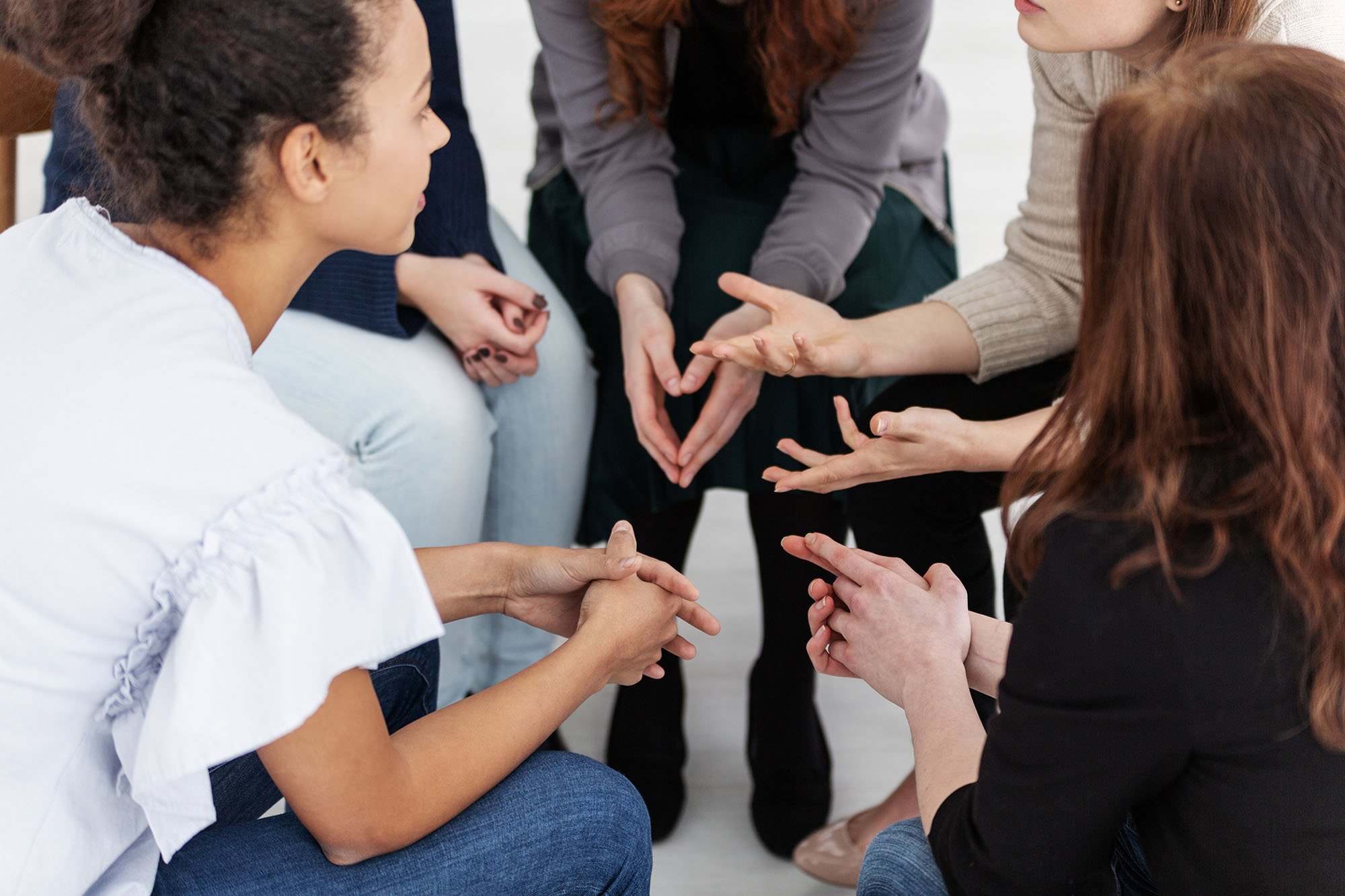
Our services
GETTING HELP AT RISE
Clients come to RISE either through another agency, the Family Court, NZ Police, or through a self-referral where you contact us directly. We hold an initial assessment meeting to identify the service best suited for you.
On this page, scroll down to read more about the programmes we have for adults, families, and youth and children. If you prefer to view and print a brochure about our services, click here to learn more about RISE’s programmes.
To find out about becoming a client, the next steps in the process, confidentiality, and your rights and responsibilities, click on the button below.
ADULTS
RISE offers services for adults in groups or one-on-one with a clinician. Our services include learning how to live safely with a partner or within a whānau, how to have safe relationships with partners and/or within a family, handling trauma, help for new and existing fathers, and services for users of violence who wish to live without violence.
FAMILY AND WHĀNAU
Family and whānau support
Whānau that has experienced or is experiencing family harm can learn how to improve safety and have healthy relationships. Our clinicians may connect you to extra community services to support your family’s needs.
-read more-
The service provides social work support for families where family violence issues that put their children’s safety and wellbeing at high risk have been identified. The intervention focuses on a family’s current needs, with a view to improve their safety and well-being and connection to wider community. It could also be useful for individuals who are coping with the change in a relationship that affects their parenting or financial arrangements.
Programme aims
To develop a range of practical and realistic steps that support the day-to-day decision making when interacting with government departments, lawyers, health professionals etc.
To consult with other professionals for the purpose of maintaining safety and well-being of the individual and their children.
To provide information about the range of supports and entitlements that are available for individuals and their children within the community
To assist in gaining access to qualified family support services.
To provide interventions that make it possible for individuals to feel confident in their parenting and empowered to find a sense of direction in their lives so they can live violence free.
To provide intervention for individuals who are experience parenting difficulties, focusing on managing behaviour and resolving conflict.
Format
This service can be provided together with other RISE services that are being accessed at the same time. A clinician works with the family either in office-based sessions or out of the office attending appointments to access services or visiting with the family at home depending on the safety issues present.
Get in touch
Parenting education
Parents with youth in a RISE programme can learn parenting styles and practical tools to support positive parenting. Develop conflict resolution strategies and skills to manage your child’s challenging behaviour.
-read more-
The Parenting Education Programme emphasises risk reduction and takes a culturally responsive approach based on the idea that a young person’s abusive behaviour does not happen in isolation. To help parents focus on managing the young person’s behaviour and de-escalating conflict with them, we use a strength–based practice that is focused on:
Empathy, inclusion and valuing parent/caregiver
Reserving judgement, working with the information provided from the referral agency and hearing the parent/caregiver story.
Negotiating how we will work with family members so they feel safe to be open and receptive,
Working with other agencies for the best outcome for that person,
Balancing power within the relationship between RISE LS and the client
Being aware of the power imbalance within the adult-young person relationship, the behaviour being the issue not the young person
Format
The programme is delivered in ten one-hour one-on-one meetings to focus on the behaviours of the young person and to build positive parenting strategies that are holistic and realistic. Each family is matched to one of our clinicians based on the family’s needs. RISE staff may also work with other agencies to seek the best outcome for the client.
Stories
Read case studies and stories for clients who are Parents.
Get in touch
Dads programme
Help to be a connected, compassionate, confident and resilient dad. Dads and anyone who is in a father-role with children can sign up for this free course.
YOUTH AND CHILDREN
A variety of age-appropriate, specialist services are available for children from ages 2 to 17. Programmes are age-specific and feature clinicians with training to work with young people who have experienced or are experiencing family harm, stress, unhealthy relationships, and lack of safety.
FEES AND PAYMENT
If you are attending as part of a Family Court or Corrections referral our services are free.
If you are taking up a RISE service voluntarily, money will never be a barrier to receiving help. If it’s possible, we ask you to make a contribution to sessions with a RISE clinician. Costs vary between group programmes and individual programmes. Work and Income may help cover costs.
TRAINING
We can speak to groups, organisations, workplaces, and businesses about family violence or harm, being aware of people or staff who may be experiencing family violence, being a family violence first responder, and other early intervention techniques.

